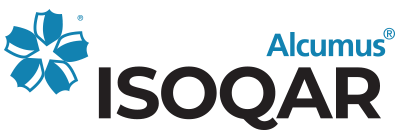
Food safety standards
HACCP, ISO 22000, IFS and BRC
The risk to consumer health can be most effectively reduced if the danger points are identified. The preventive approach is characterized by codes and standards for food safety HACCP, ISO 22000, IFS and BRC. There is increasing pressure on food manufacturers and distributors to implement other food safety management systems in addition to HACCP.
Organizations must constantly influence top management and other employees in order to develop expertise and awareness about environmental protection, to introduce new, environmentally friendly technologies and processes, to improve environmental protection results with preventive measures.
This standard is based on a risk assessment where all environmental aspects and impacts related to the organization's activities are identified. How can we help you? Here are some of the benefits your organization will realize
HACCP (HAZARD ANALYSIS AND CRITICAL CONTROL POINTS) CAC/RCP 1-1969, Rev. 4-2003
The European Union has included HACCP in its directives, the Law on Food Safety clearly states that "Subjects in the food business are obliged to establish a system for ensuring food safety in all stages of food production, processing and circulation in accordance with the principles of good production and hygiene practices and analysis of hazards and critical control points (HACCP).
The HACCP system is a system of principles and methodologies that ensure the production of healthy food.
HACCP PRINCIPLES:
- Carrying out hazard analysis (physical, chemical and biological risks)
- Determination of critical control points
- Setting critical limits
- Establishing a monitoring system
- Reducing the risk of fines and legal proceedings in the field of environmental protection
- Establishment of corrective measures
- Establishing procedures for verification
- Documentation requirements
It is safe to say that HACCP principles represent a significant part of all other food safety standards.
FOOD SAFETY MANAGEMENT SYSTEM ISO 22000:2005
ISO 22000 is the first international food safety standard that specifies requirements for a food safety management system where an organization in the food chain must demonstrate its ability to control hazards and that the product is safe for consumption. This standard combines the following key elements to ensure food safety:
- Interactive communication
- Management system
- Previous programs
- HACCP principles
IFS
Large hypermarket chains have set a new requirement for their many suppliers - the implementation of IFS.
- IFS Food is a standard for checking organizations that produce food
- IFS Cash & Carry / Wholesale is a standard that covers food product handling activities in hypermarkets and wholesale facilities.
- IFS Logistics is a standard that covers logistics activities (loading, unloading, transport, handling, etc.)
IFS Food covers the following areas:
- Section 1: Top management responsibility (policy, structure, customer focus)
- Section 2: Quality management system (HACCP system, documents and records)
- Section 3: Resource management (space for employees, personal hygiene, work uniform, etc.)
- Section 4: Manufacturing process (product specifications, procurement, packaging, factory infrastructure, hygiene maintenance, pest control, traceability, etc.)
- Section 5: Measurements, Analysis and Improvements (Internal Verification, Product Analysis, Product Recalls, Corrective Actions, etc.)
BRC (BRITISH RETAIL CONSORTIUM)
BRC Global Standard for Food Safety Edition 5 The first edition of the BRC dates back to 1998 and arose out of the need for food suppliers to be checked by certification bodies against a single set of requirements, thereby avoiding duplication and additional work when checking suppliers. BRC allows food distributors to focus on market competition without worrying about food safety. BRC is built on a set of risk-based requirements.
Benefits brought by the implementation of BRC:
- A standard based on safety, legal requirements and quality
- Clear and detailed requirements based on HACCP principles
- Process documentation
- Standardized report format
- Complementary with the requirements of ISO standards and HACCP

